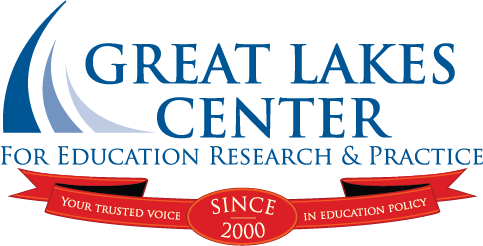
Think Twice Weekly Report
OCTOBER 7, 2023 - OCTOBER 13, 2023
The Think Twice Weekly Report compiles public education-related policy reports, research and articles of interest to policymakers, educators and stakeholders. This list is not exhaustive but is meant to highlight recent reports that may be used to support or undermine the work of our subscribers in supporting public schools. We encourage you to take a moment to scan these reports and determine if they may be used by policy makers to assist or erode your mission.
 Policy Reports
Policy Reports
Grade Retention
Source: Fordham Institute
Date: 10/11/2023
Think Again: Is grade retention bad for kids?
For many years, the conventional wisdom in the field was that grade retention was a bad idea. A 1997 opinion piece in Education Week titled "Grade retention doesn't work" reflected the prevailing sentiment in the education community and the available research evidence at that time: retained students performed worse than their promoted peers in the years that followed.[1] This brief challenges that notion, based on more recent studies that do a better job of isolating the causal effect of retention.
Student Enrollment
Source: Brookings Institute
Date: 10/12/2023
Declining school enrollment since the pandemic
The COVID-19 pandemic has had dramatic effects on the learning experiences and academic performance of children as well as on parents, teachers, and schools. Recent investigations have documented large declines in K-12 student enrollment in public schools at the state and district levels after the COVID-19 pandemic (Dee and Murphy 2021, Musaddiq et al. 2022, Dee 2023). However, state- or district-level evidence on enrollment declines may obscure how these losses vary for different types of public schools, such as by grade level and by the characteristics of the community. As more post-pandemic data are reported, a clearer picture of the nationwide declines and their implications for students and public school systems emerges. In this paper, we investigate how student enrollment in public schools is different after the COVID-19 pandemic. Our study goes beyond some of the previous explorations in four important ways. First, we use U.S. Census Bureau data to estimate the number of school-age children in each district and infer the number of students not attending public school prior to and after COVID-19. Second, we document the enrollment trajectories in typical (i.e., median) schools in each grade level, locale, and socioeconomic status. Third, we show variation in enrollment changes across schools by looking at the distribution of enrollment changes during the pandemic. Finally, we compare the distribution of enrollment changes during COVID-19 to those from the pre-pandemic years to infer typical and extraordinary enrollment declines.
 Reports Reviewed
Reports Reviewed
GLC seeks to ensure that policy briefs impacting education reform are based on sound, credible academic research. Below are reviews conducted with GLC support.
Review of The 123s of School Choice: What the Research Says About Private School Choice Programs in America, 2023 Edition
Source: EdChoice
Reviewed by: Christopher Lubienski, Indiana University
The 2023 (fifth) edition of a semi-regular EdChoice report about school-choice studies is billed as an updated overview of the varied and often contested research on outcomes in voucher-like programs that provide public funding for private schools. But like earlier editions, it uses flawed methods that tally certain voucher studies finding impacts on any subgroup, even if there was no effect on most students. There is little to no accounting for the studies' sampling, quality, generalizability, or other important factors.
Christopher Lubienski of Indiana University reviewed The 123s of School Choice: What the Research Says About Private School Choice Programs in America, 2023 Edition and found fault in its study-selection issues, a mis-weighting of studies of varied value, and a simplistic and often misleading design.
 What We're Reading
What We're Reading
Research and articles that we want to highlight for subscribers as potential resources:
People Power Vs. the Far Right Education Movement
By: Glenn Diagon, The Progressive Magazine
Democracy Forward's Skye Perryman talks about how to fight back against the far right's movement to undermine public education.
Westat to lead resource center on equity in special education
By: Kara Arundel, K-12 Dive
The new technical assistance center aims to complement existing resources for states to help districts reduce racial disparities in special education services.
Digital divide persists as 22% of low-income households with children lack internet
By: Matt Barnum, Chalkbeat
CZI's shift in approach marks something of a coda to an era when various advocates and funders believed that computer-based "personalized learning" could dramatically improve education. Summit, CZI's pet project, has not spread as far as once hoped, and there's little evidence that it or similar efforts have led to the large learning gains that Zuckerberg envisioned. This gap between ambitions and results underscores the difficulty of using technology to dramatically improve America's vast system of decentralized schools.
Federal LGBTQ+ workplace protections could land some schools in hot water
By: Naaz Modan, K-12 Dive
Schools could be caught between proposed EEOC guidance and state policies restricting facility access and pronoun usage for transgender employees.
Aging states to college graduates: We'll pay you to stay
By: Jon Marcus, Hechinger Report
More states desperate for skilled workers are helping them pay off their student loans
